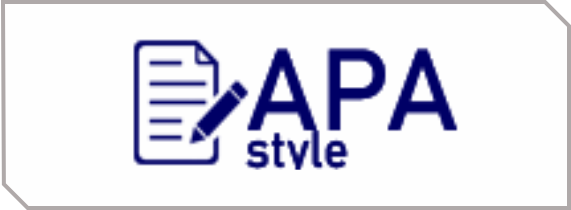| .: e-ISSN :XXXX-XXXX:. |
| .: p-ISSN :XXXX-XXXX:. |
| .: Policies & Procedures :. |
| Editorial Team |
| Reviewer Team |
| Focus and Scope |
| Peer Review Process |
| Publication Ethics |
| Author Guidelines |
| Open Access Policy |
| Archive Policy |
| Open Access Statement |
| Policy of Screening for Plagiarism |
| Journal License |
| Author Fees |
| .: Indexing :. |
 |
 |
|
|
|
|
| .: Informasi :. |
| For Readers |
| For Authors |
| For Librarians |
| .: Alat Bantu :. |
 |
| .: Template :. |
 |
| .: Contact Wa:. |
 |
| .: Visitors:. |
Publication Ethics
This journal may be read, downloaded, copied, distributed, printed, searched, or linked to the full text of this article, save the article, browse for indexing, pass it as data to software, or use it for any other legitimate purpose, without financial, legal barriers , or technicalities other than those inseparable from gaining access to the internet itself.
This scientific publication code of ethics statement was made based on the Regulation of the Head of LIPI No. 5 of 2014 concerning the Code of Ethics for Scientific Publications. The publication code of ethics is a norm that must be obeyed by authors who will publish their scientific work in the publication media, including:
- Moral: able to distinguish between good and bad behavior in writing.
- Scientific integrity: upholding scientific principles, essence and truth, so as not to sacrifice them for any interest.
- Neutrality: free from conflicts of interest in publication management
- Justice: giving authorship rights to those entitled to be authors
- Honesty: free from duplication, fabrication, falsification, and plagiarism (DF2P) in publications.
Disclosure and Conflict of Interest
Unpublished material in a submitted article may not be used in the editor's own research without written consent from the author.
Duties and Responsibilities of the Chief Editor
- Determine the name of the journal, scientific scope, periodicity, and accreditation if necessary.
- Defines editor membership.
- Defining the relationship between publishers, editors, bestari partners, and other parties.
- Respect confidential matters, both for contributing researchers, authors/writers, editors, and bestari partners.
- Implement norms and provisions regarding intellectual property rights, especially copyrights.
- Conduct journal policy reviews and submit them to authors/writers, editors, bestari partners, and readers.
- Create code of conduct guides for editors and reviewers.
- Publish journal regularly.
- Guarantee the availability of funding sources for the continuation of journal publication.
- Build a network of cooperation and marketing.
- To improve the quality of journals.
- Prepare permits and other legal aspects.
Editor Duties and Responsibilities
- The editor provides comments on the author's writing so that readers can understand what the author wants to convey, through the comments written on the article.
- The editor provides comments on the author's writing in accordance with the EBI language (Indonesian Spelling) or the language in accordance with the standardization of the journal.
- The editor seeks to improve the quality of publications on an ongoing basis;
- The editor promotes freedom of opinion objectively,
- The editor submits corrections, clarifications, withdrawals, and apologies when necessary,
- The editor ensures that the author's writing is not related to SARA or anything that can harm the Publisher and coordinates the author's writing to the editor in chief of the publisher if the article is slightly controversial.
- The editor receives, reviews, and follows up on complaints from all parties involved in publishing the journal;
- Editors support initiatives to educate researchers on publication ethics,
- The editor does not defend the opinion of the author or third party which may result in an objective decision,
- The editor encourages authors/writers to be able to make improvements to their papers so that they are worthy of publication.
- The editor layouts the articles to be published so that they match the journal template.
- The editor assists the editor-in-chief in finalizing a collection of articles before they are printed and published, especially in terms of language, format and layout.
Duties and Responsibilities of Bestari Partners
- Provide written feedback that is objective and unbiased regarding the scientific value and contribution of the article to the development of science;
- Indicate whether the article writing is clear, complete, and relevant, and whether the article is within the scope of the journal;
- Do not provide criticism or comments that are personal; And
- Maintain the confidentiality of the article, by not discussing it with unrelated parties, or disclosing the information contained in the article to other parties.
Writer Ethics
The code of ethics that must be fulfilled by writers who will publish their scientific articles in engineering journals:
- Authors must uphold scientific conduct, understand the benefits/advantages and risks of published writing.
- Articles published are free from misconduct, including: fabrication, falsification of data, and plagiarism/autoplagiarism.
- The author must include adequate citations on all statements, ideas, data, which are not the results of his research.
- Published articles do not cause conflict with certain parties or have the potential to disturb the community.
- The authors listed in the published articles are truly competent and have a significant contribution in writing the article.
- The author does not double publication of the article to be published (double manuscript submission) to journals or other means of publication, simultaneously (simultaneously).
- Part or all of the articles published have never been published in other publication media.
- Published articles are original results of research, ideas or thoughts of the author.
If the article has been declared accepted, the author is required to fill out an Author Statement regarding the Code of Ethics for Scientific Publications which is signed on a stamp duty by the main author.





